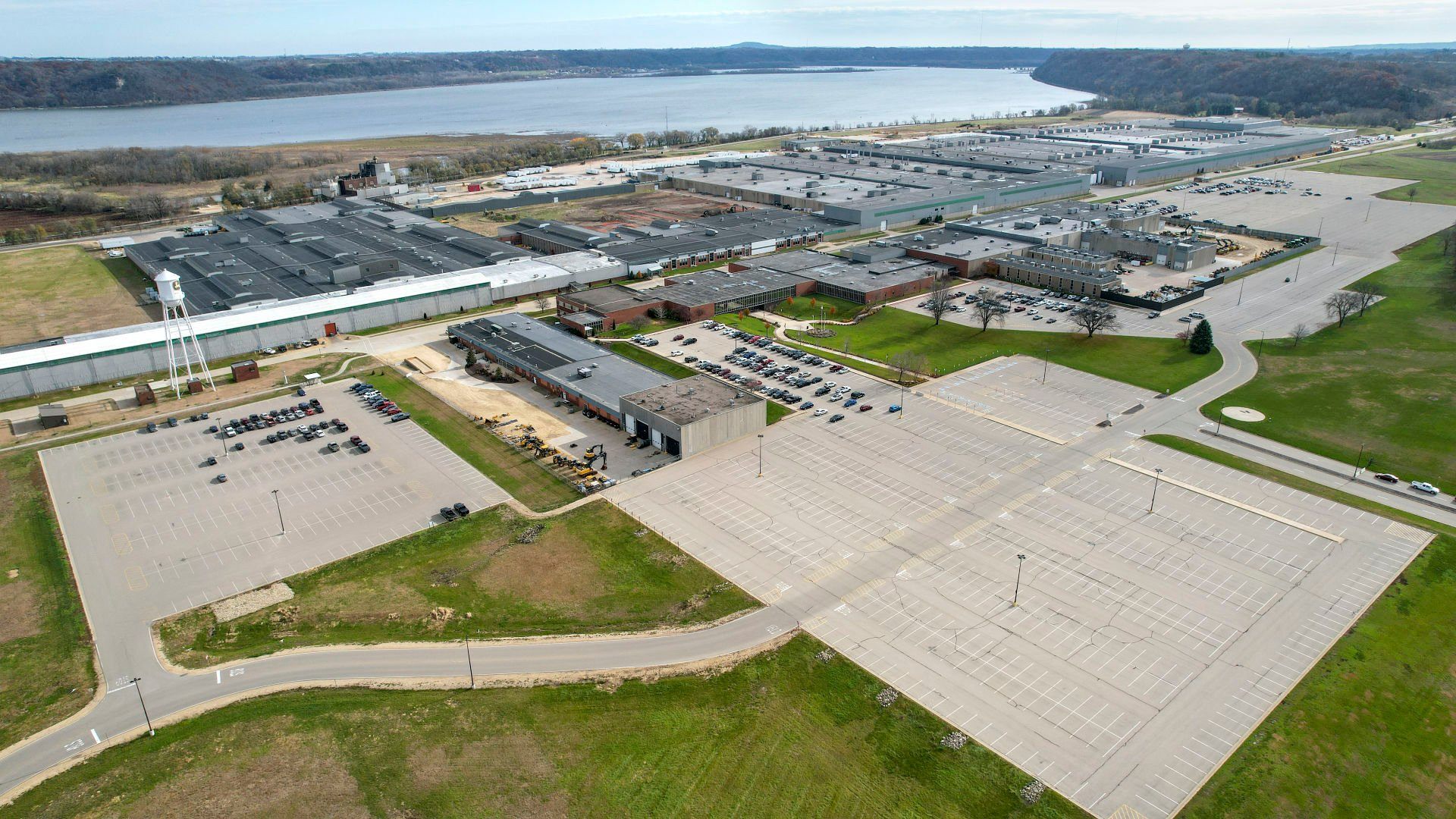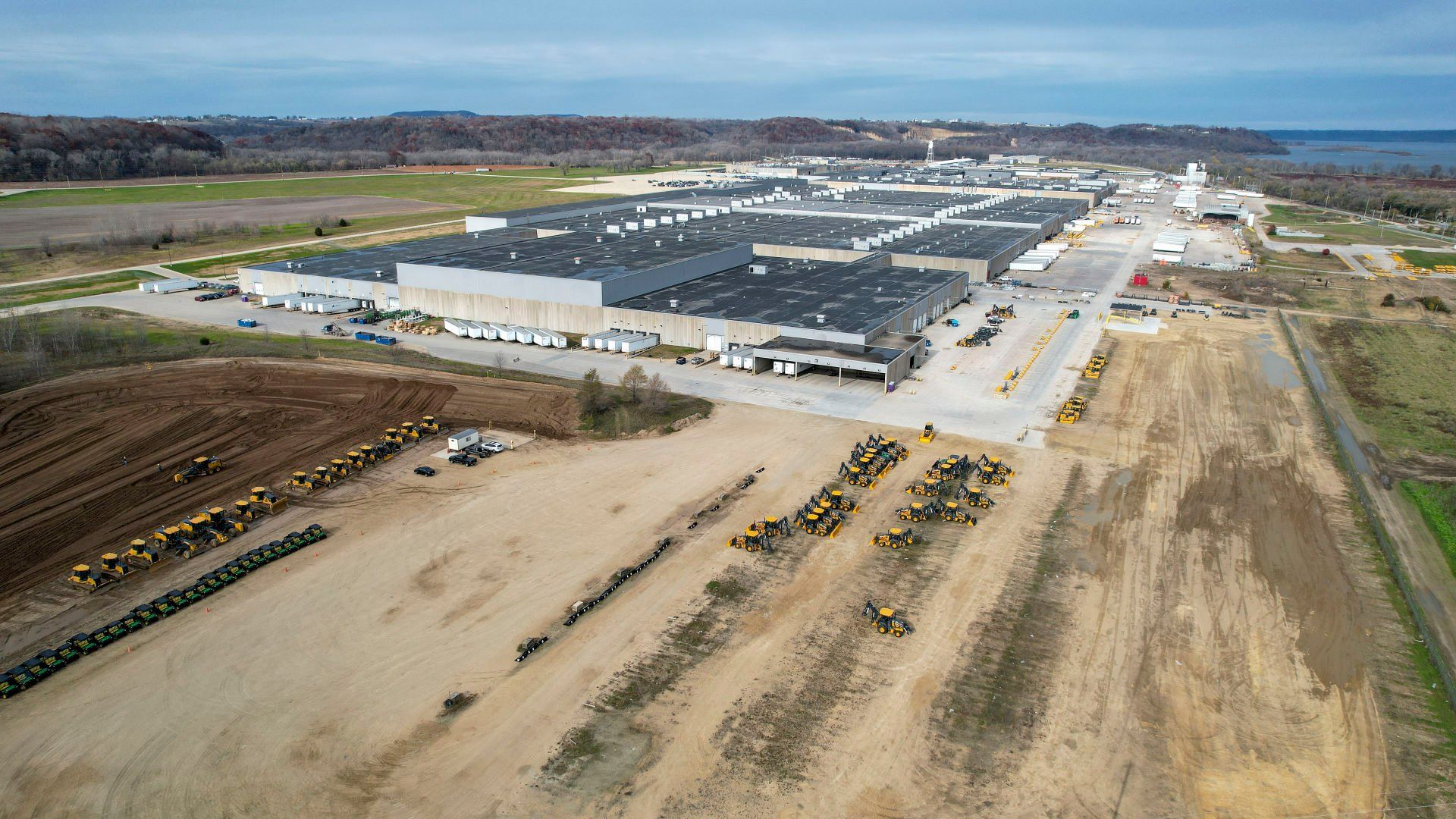Union members on Wednesday ratified a new agreement with Deere & Co., putting an end to a five-week strike and setting the stage for a return to normalcy at the largest employer in Dubuque County.
International Union, United Automobile, Aerospace and Agricultural Implement Workers of America approved the contract with 61% of affected members voting in favor, according to union officials. Support was even stronger among union members at John Deere Dubuque Works, with nearly 68% voting for ratification.
In a press release, Deere hailed the ratification.
“I’m pleased our highly skilled employees are back to work building and supporting the industry-leading products which make our customers more profitable and sustainable,” said John May, chairman and CEO for Deere, in the release.
In a prepared statement, UAW Vice President Chuck Browning framed the new contract as a victory that would positively impact workers nationwide.
“The sacrifice and solidarity displayed by our John Deere members combined with the determination of their negotiators made this accomplishment possible,” Browning stated. “They have started a movement for workers in this country by what was achieved here today, and they have earned the admiration and respect of all that strive for what is just and equitable in the workplace.”
Under the new deal, union members will receive a 10% pay increase in their first year of the contract, as well as subsequent increases of 5% in the contract’s third and fifth years.
In addition, this week’s offer included 3% lump-sum payments in the second, fourth and sixth years of the deal. The offer also provided an $8,500 ratification bonus, preserved a pension option for new employees, made workers eligible for health insurance sooner and maintained their no-premium health insurance coverage.
The contract between UAW and Deere covers more than 10,000 production and maintenance workers at about a dozen facilities across the Midwest. John Deere Dubuque Works employs 2,800 workers, about 1,500 of which are union members.
Given the sizable economic influence of Deere, the ratification of a new agreement was cause for celebration among local economic leaders. Rick Dickinson, president and CEO of Greater Dubuque Development Corp., contextualized Deere’s importance to the local economy.
“It’s not just the number of employees they have — it is the brand, it is the quality of the pay and benefits provided to their hourly and salaried workers, and it’s the fact that the company acts as a magnet that brings suppliers to Deere into our regional economy,” he said.
With a new deal reached,Dickinson is hopeful that the manufacturer soon will be firing on all cylinders again.
“Nothing runs like a Deere when Deere is running,” he said. “And it looks like that is where we’re headed.”
Union workers had been on strike since Oct. 14. It was the first major strike at the company since 1986.
Picketers became a fixture at multiple entrances to the Dubuque plant, holding signs and often earning honks of support from passing motorists. Members also routinely gathered outside the United Auto Workers Local 94 Hall on Central Avenue.
Meanwhile, company officials said they were using salaried employees and other workers to try to keep factories operating during the strike. Other Deere plants globally also worked to pick up work.
The contract ratification comes just eight days after the union rejected a similar proposal from Deere. Union members voted that offer down on Nov. 9 by a margin of 55% to 45%
At various points, the stalemate between the two sides grew tense.
The initial tentative agreement between Deere and the UAW was rejected in early October by 90% of UAW members, underscoring the chasm between what UAW sought and what Deere was willing to offer in the early stages.
Speaking to the Telegraph Herald, one union steward emphasized at the time that union members in Dubuque were frustrated with their own leadership for even considering that offer. The union steward later said it was possible the strike would last as long as the six-month work stoppage in 1986.
Deere leadership expressed their own concerns a few weeks later, when union members rejected the second proposal. Company officials emphasized at the time that they stood behind that agreement and were unlikely to make any substantial changes to that proposal moving forward.
Leadership at Deere also broadcast the possibility that it could use third-party labor or shift local manufacturing overseas if the strike persisted.
The work stoppage occurred against the backdrop of what had been a successful year for Deere. The company reported net income of $4.7 billion through the first three quarters of the current fiscal year, easily eclipsing the $2 billion reported through the first nine months of the previous fiscal year.
Following the contract ratification, the company’s CEO emphasized that more success lies ahead.
“We have faith that, in return, our employees will find new and better ways to improve our competitiveness and transform the way our customers do their work,” May said in the release. “Together, our future is bright.”




